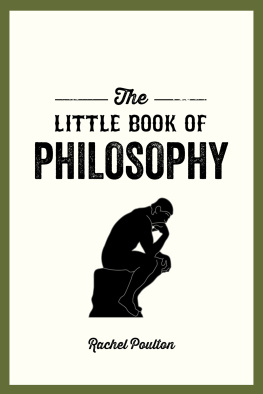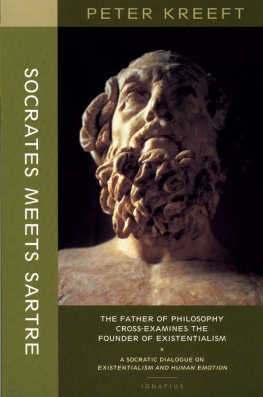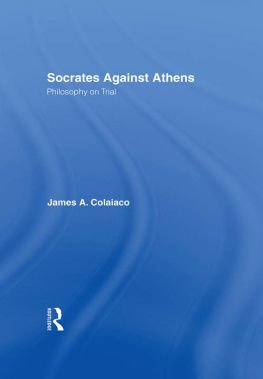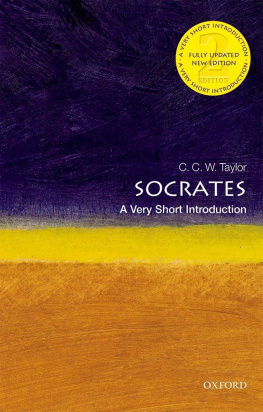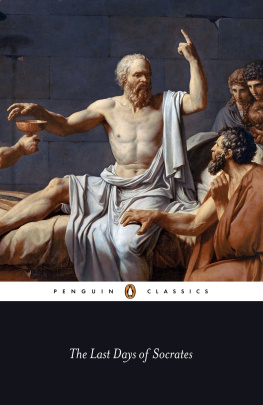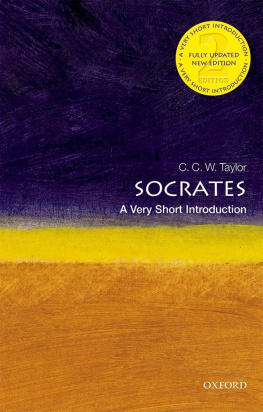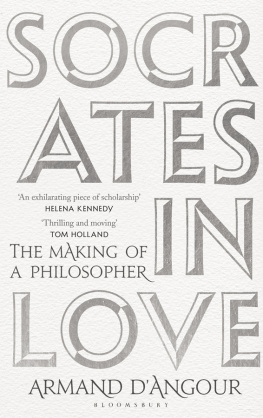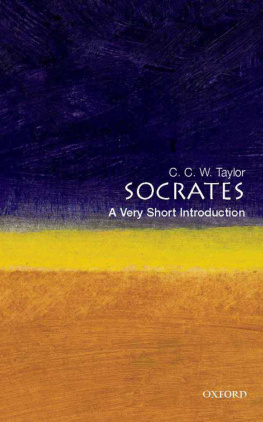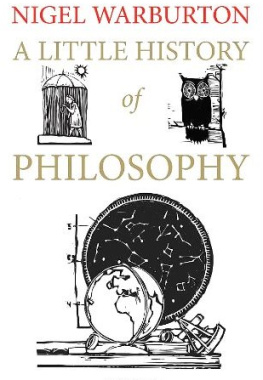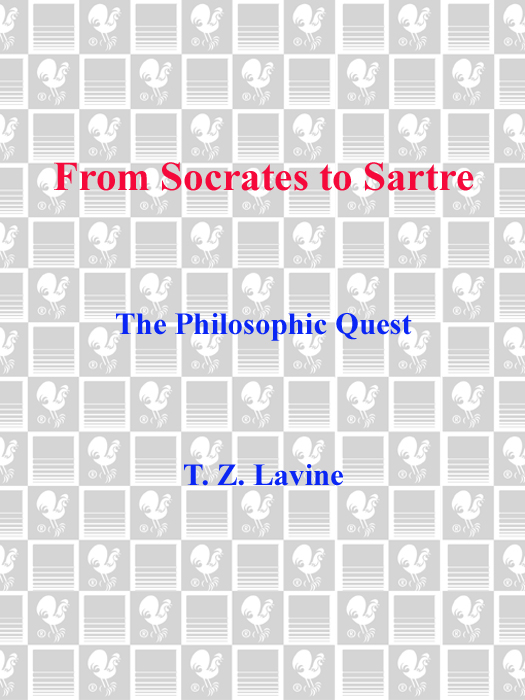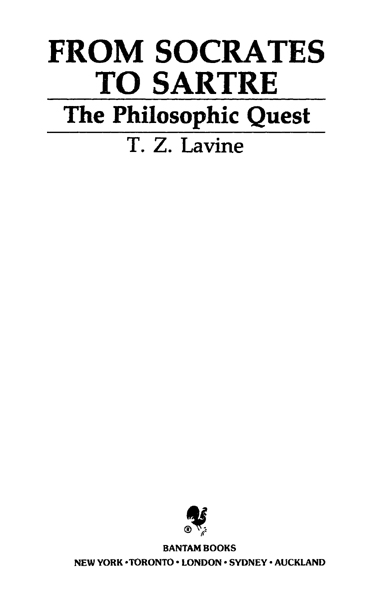FROM SOCRATES TO SARTRE:
THE PHILOSOPHIC QUEST
Professor Lavine not only makes the philosophies intelligible, but the philosophers themselves come alive.
Henry B. Veatch
Professor of Philosophy
Georgetown University
Professor Lavine has a humane, deeply informed, and provocative mind. Her book deserves an audience which cares strongly about the generative ideas which have shaped human existence.
Maurice Natanson
Professor of Philosophy
Yale University
FROM SOCRATES TO SARTRE is an elegantly written, lucid and informative work. Dr. Lavines analytic acumen illuminates the central themes of philosophy with a sense of relevance and urgency that helps the student of philosophy embark on the road to wisdom. The book is a tribute to the power, independence and practical value of ideasa memorable and engrossing message.
Peter Diamandopoulos
Professor of Philosophy
San Francisco State University
FROM SOCRATES TO SARTRE is an impressive account of major developments in the history of philosophy. Dr. Lavine writes clearly and with sympathetic, but also critical, understanding of the philosophical issues examined. I hope the book wins the wide audience that its merits deserve.
Ernest Nagal, Professor Emeritus
Department of Philosophy
Columbia University
HERE ARE JUST A FEW OF THE
OVERWHELMING RESPONSES FROM
VIEWERS OF THE PBS TELEVISION SERIES:
Im hooked on your superb television series, From Socrates to Sartre. The clarity and concision with which you present some fairly abstruse ideas is truly commendable.
Napa, California
My husband and I are truly impressed by your grasp of philosophy and by the way in which you present the entire series, from ancient to present times, with such warmth and clarity.
Burlington, Vermont
Your marvelous series has just concluded in the San Francisco Bay area, and I want to congratulate you for a meaningful and successful effort to relate philosophy to practical everyday living.
Fremont, California
I have seen your television series, From Socrates to Sartre it provides enlightenment that for many years we have been hoping to find in print.
New York, New York
T. Z. L AVINE is currently Elton Professor of Philosophy at George Washington University. Professor Lavine received a Ph.D. from Harvard University and has received, among other awards, the Josiah Royce Fellow in Philosophy and a research fellowship in philosophy (Harvard). The author of numerous articles and books, Professor Lavine wrote and presented From Socrates to Sartre as a television series for the Maryland Center for Public Broadcasting, a series which is now included in the curriculum of the National University Consortium.
FROM SOCRATES TO SARTRE
A Bantam Book / March 1984
Illustrations courtesy of The Bettman Archives and Culver Pictures.
All rights reserved.
Copyright 1984 by T. Z. Lavine.
No part of this book may be reproduced or transmitted in any form or by any means, electronic or mechanical, including photocopying, recording, or by any information storage and retrieval system, without permission in writing from the publisher.
For information address: Bantam Books.
eISBN: 978-0-307-79357-7
Bantam Books are published by Bantam Books, a division of Random House, Inc. Its trademark, consisting of the words Bantam Books and the portrayal of a rooster is Registered in U.S Patent and Trademark Office and in other countries. Marca Registrada. Bantam Books, New York, New York.
v3.1
CONTENTS
The main branches of philosophy and the questions they raise and try to solve. Why study philosophy? The attacks upon philosophy. Try to imagine a world without philosophy. In this book the works of six philosophers and their views of man, God, nature, history, truth, ethics, and politics will be explored; and the philosophic viewpoints dominating the contemporary scene in philosophy will be examined.
The historical situation: from the Golden Age of Athens under Pericles to the defeat of democratic Athens by authoritarian Sparta in the Peloponnesian War. The Rule of the Thirty; Charmides and Critias. The Socratic philosophy. The trial and death of Socrates (399 BC ). Platos life Plato and counterrevolutionary politics in Athens. The concept of the philosopher-king
Plato as synthesizer of the conflicting philosophies of the Greek world The dialogue form. Platos sources: Socratic method; Socratic definition; the pre-Socratic philosophers: Heraclitus and Parmenides; the Sophists Platos metaphysical synthesis and its expression in the Allegory of the Cave. Contemporary relevance of the allegory.
Platos theory of knowledge. What is true knowledge and how is it reached? The divided line: diagram of four levels of knowledge, each level with its own objects and its own method for knowing them. Opinion versus knowledge. Platos theory of forms (ideas, essences). The Idea of the Good. The meaning of dialectic for Plato The ascent out of the cave to the Idea of the Good as Christian symbolism.
Plato versus the Sophists; the immutable truth of Platos forms versus contemporary cultural and ethical relativism. Analysis of the idea of justice, Book I of the Republic The form or idea of man Theory of the tripartite soul. Relation to contemporary psychology, especially to Freud The charioteer and the two horses The man, the lion, and the dragon. Platos ethics: Justice in the soul The highest good is the life of reason. Virtue is knowledge
Platos political philosophy: Justice in the ideal government is modeled upon the tripartite nature of the human soul and its justice, the proper harmony of the parts The three classes of society and their education for their tasks: the producers; the administrators and warriors; the philosopher-kings. The Noble Lie. The status of women. Getting and spending, the life of the producers. The ascetic, disciplined life of the guardian class. Political absolutism Criticism of justification by absolute truth. Who guards the guardians? The charge of totalitarianism against the Republic.
The terror of history seen in the loss of the Athenian civilization, the decline and fall of the Roman Empire. The classical world view of Plato and Aristotle was of a natural cosmos, rational, ordered, moral, and purposeful which is known solely by human reason. This was replaced by the supernaturalistic world view of the Church, whose source is divine revelation and whose fundamental beliefs must be accepted by faith, and are beyond the power of human reason to explain or to prove. Platonists versus Aristotelians. From the fourth to the fifteenth century the domination by Christianity of the entire social and cultural world of Europe. The survival of Plato and Aristotle in Christian philosophy; the recovery of Aristotle in the twelfth century. The emergence of the Renaissance, the regaining of classical learning and art. The Discoveries and the rise of technology. The shift to the view of truth as accessible to human reason The rise of astronomy: the transition from Ptolemy to Copernicus, Kepler and Galileo; their challenge to existing beliefs. Galileo and the Inquisition. The growth of mathematics, physics, chemistry, physiology. The seventeenth century: The continued advance of scientific methods, technologies, and discoveries: the rise of philosophic interest in the new scientific method. Descartess historical situation The life of Descartes: mathematician, physicist, philosopher.


